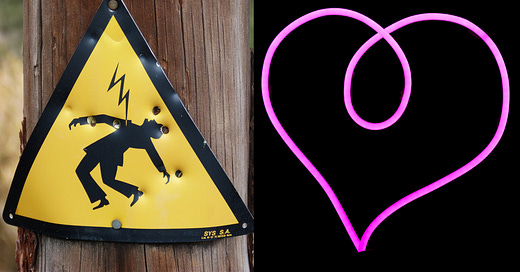Stress.
Do you feel it? Maybe stress has become an unwelcome friend recently, visiting more often than you’d like during this turbulent season of world events, the election cycle, economic trends, etc.
If every day is bringing new challenges – leaving you feeling overwhelmed and anxious – grounding yourself becomes essential to maintain emotional stability and mental health.
Full disclosure: I’m feeling stress, almost like I’ve been steeped in it for a few months. In my efforts to work through it, I’ve dedicated the 2 most recent episodes of The Courage Effect podcast to the topic (#63: Surviving a Chaotic World: Practical Strategies for Navigating Stress, Anger, and Anxiety and #64: The Power of Pause: A Courage Up! 30-Day Challenge Mindfulness with Allie Siegel).
What I’ve discovered: rather than seeking a calm state, I’m shifting to the pursuit of feeling grounded. It feels more realistic as I navigate this season and is rendering noticeable results. While calmness represents a state of tranquility, it can often feel out of reach – adding even more stress. Grounding, on the other hand, is about finding steadiness amidst the chaos, making it a more manageable and practical goal.
Think about a grounded electrical wire: connected to the ground, carrying excess electrical current away from a device. Similarly, the ability to ground ourselves protects us — neutralizing energy that could set us off and take our minds and bodies into states we’d rather not be.
In the hope of providing you with additional support during high-stress times, here are a few of my recommendations on how you can incorporate practical grounding techniques into your daily life.
Techniques for Grounding
1. Breathing
It may seem basic, but conscious breathing can make a significant difference when it comes to resetting. Taking 3 deep breaths while focusing on the sensation of gravity helps soothe your nervous system - pausing to take those deep breaths can provide an immediate relief from stress, creating a sense of stability. It’s also something you can do it in real-time, without those around you knowing you’re actively gaining equilibrium.
2. Get Moving
Any movement can help – sometimes just getting out of your chair to stretch or moving into another room can be a grounding process. We experience both physical and mental benefits from walking, running, dancing, or anything that gets your body moving. Whatever feels good - just move.
3. Limiting Social Media and News Consumption
I know this is easier said than done. But when our efforts to stay informed spiral into increasingly consistent exposure, news and social media amplify feelings of stress and anxiety. Think about putting yourself on a ‘news diet’, restricting media consumption to essentials only – where you allocate a specific amount of time each day (such as 30 minutes) to read or watch the news. If you need additional intervention support: some apps have timer settings you can activate, or maybe think about removing them from your devices for a few weeks. Whatever your approach, these limits create a sieve that filters in just enough information to stay on top of things without overwhelming yourself.
4. Embracing Routine Activities
Predictable and routine activities can create a soothing effect, surfacing comfort through expectation and repetition. Whether it’s cooking, crosswords, knitting, gardening, or (dare I say it) folding laundry, these actions can ground you by offering a sense of normality and control.
5. Get Creative
Activate different parts of your brain through creative activities like drawing, writing, painting, singing . . . something where you can tap into your imagination for the pure joy of creating without judgement or criticism.
6. Practice Mindfulness
A mindful approach involves being present and aware of your physical and emotional states. It can be as simple as taking a 30-second pause to acknowledge your surroundings, or more focused through a mindfulness session (such as the 5-minutes recommended in our 30-day Courage Up! Challenge). Paying attention to your senses can provide an anchor for you to be “in the moment”, easing the grip of stress.
7. Go Outside
Immerse yourself in the outdoors. Whether it’s sitting in a garden, walking your dog, or engaging in a favorite outdoor activity, nature allows you to turn down the noise of external stressors, fostering a more serene mental space.
An added bonus to grounding practices: they extend to those around you. When you’re experiencing more equanimity for yourself, it cascades to others. A grounded state allows you to be more patient, give both yourself and others grace, and bring some peace to your immediate environment.
Even when we’re stepped in uncertainty, a grounding practice can anchor us to stay steady and confident as we face the surges that come our way. Consider how you might best support both yourself and those around you to realize some sense of balance — so we can show up more often as the people we want to be.
What works to help ground you? Share your practices in the comments below 👇
Find out more about me and my work at Weller Collaboration.
Stream all our podcast episodes at the thecourageeffect.com or on your favorite podcast platform. And if you like what you’re hearing, it would mean so much if you subscribe or take a few minutes to rate or share.
You’ll find this show here on your favorite podcast platform:





